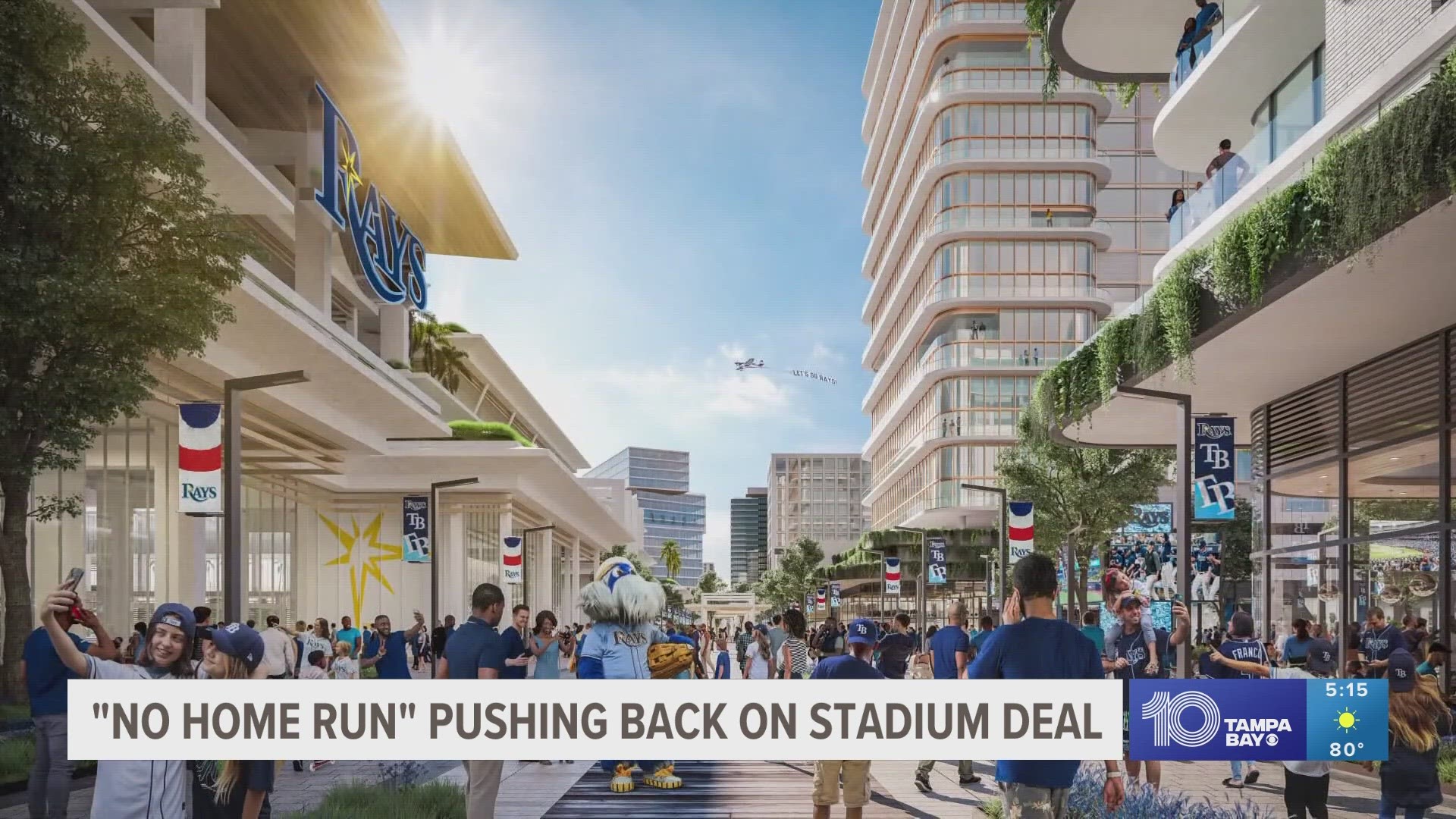ST. PETERSBURG, Fla. — As talks in St. Petersburg City Council are expected to heat up in the coming weeks, some residents are joining together to push back on the proposed new $1.3 billion stadium for the Tampa Bay Rays and the multi-billion-dollar redevelopment alongside it.
“I'm interested in what's in the best interest of St. Pete for my children, my grandchildren and for everybody's children,” said Ron Diner, the founder of No Home Run, a grassroots organization that’s opposing the deal and the public funding included in it.
The now-retired former president of Raymond James Affordable Housing and his group made up of other citizens is urging city councilors and county commissioners to take a pitch, so to speak. They say a new stadium is not necessary to redevelop the "valuable" 86-acre land in downtown St. Petersburg
“There's no reason to be rushed when there's so much money at stake,” Diner said. “At the end of the day, the deal should be a fair deal for the city,” which he believes, right now, it is not.
The proposal calls for the city of St. Petersburg and Pinellas County to pay roughly $600 million for the new stadium. According to the development agreement, the city would also sell the surrounding 60 acres to the developer for roughly $105 million.
Diner believes that is under market value and while factoring things like interest and lost tax revenue, the final cost to the public could be much higher than advertised.
“The city has to borrow the money and including interest, the city's cost of the borrowing is $700 million. The county is also going to borrow their share of the money and it's going to cost them with interest $600 million,” Diner said.
Exact financial breakdowns of the deal and how the money would be accounted for have not yet been discussed publicly, but Diner says that money and land could be better utilized for residents or spent on flood mitigation, housing or education.
While supporters of the deal and Mayor Ken Welch say the project would be a major economic driver for the area, creating thousands of jobs and boosting tourism, Diner doesn’t buy it.
“The city has an obligation to make sure it takes full advantage of the value to use the funds that will come out of it for the best interests of the community,” he added.
While those talks ramp up over the next couple of months, No Home Run says a few changes could make the existing deal more “fair for residents." Among them, charging the team rent equal to the property tax value, splitting revenue with the team and selling the 60 acres of land for a “fair value." They suggest city councilors request a third-party appraisal of the land's value.
"I just live here, I love it here and I want what's best for the city. And if baseball can be a part of it on a reasonable basis that's great," Diner said.
Mayor Welch has maintained that keeping the Rays in St. Pete and the redevelopment deal are both in the best interests of residents and he's confident the deal will move forward.
The Rays lease at Tropicana Field expires in 2027. Team leaders have said previously the existing deal is contingent on shovels getting in the ground by the end of the year.

